What you need to know about the Zika virus
2016-02-12
The Zika virus is spreading far and fast – and it’s now a public health emergency in many parts of Latin America and the Caribbean. There is no vaccine for the disease. Here’s what you need to know.
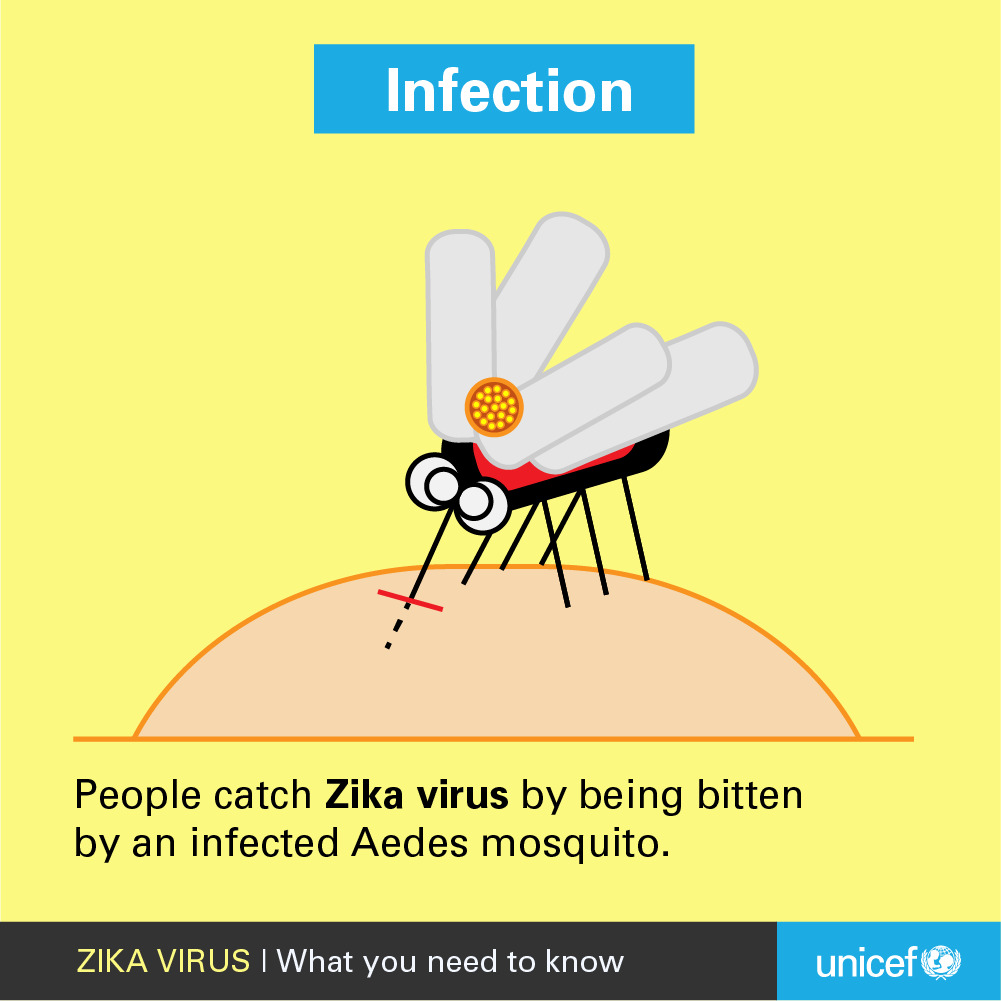
How do people catch the Zika virus?
Zika virus is spread to people through the bite of an infected Aedes mosquito and can also be transmitted through blood. Possible cases of spread through sexual transmissions are still being investigated.
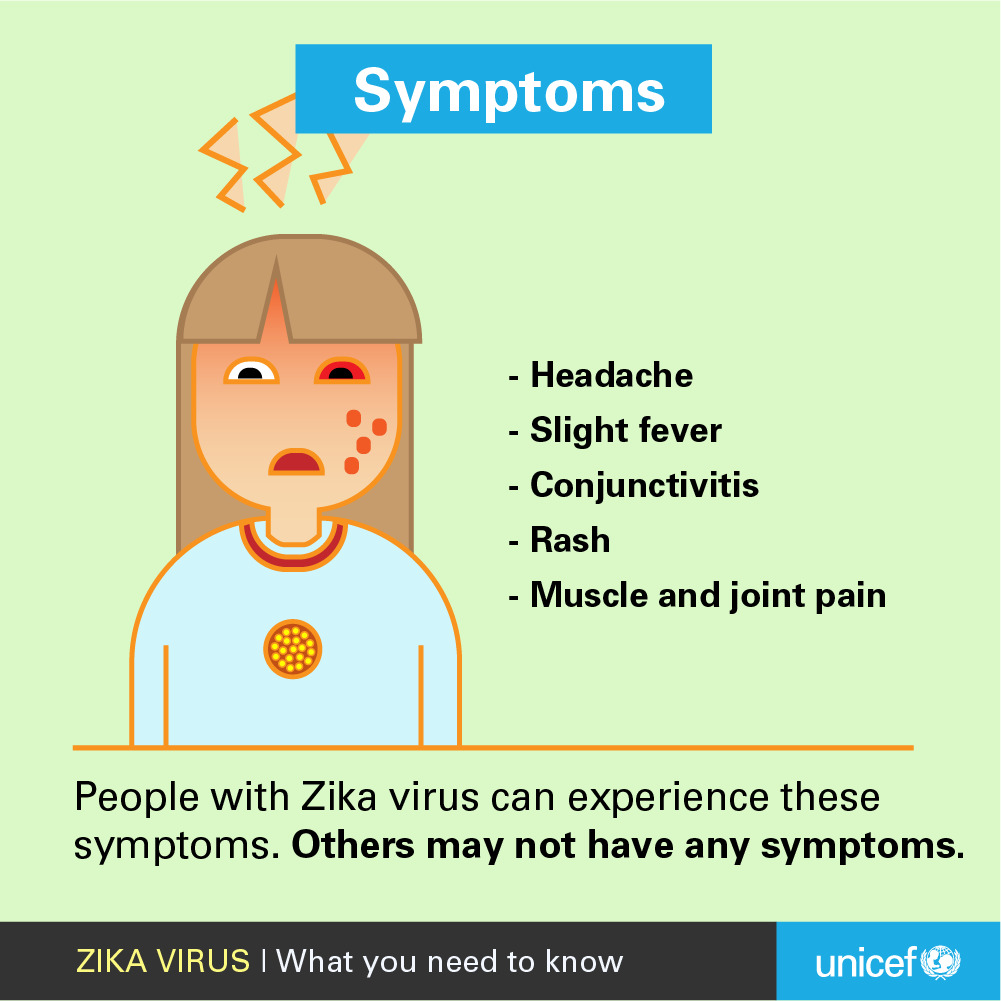
If you show symptoms or are diagnosed with Zika, help prevent others in your family from getting sick by avoiding mosquito bites.
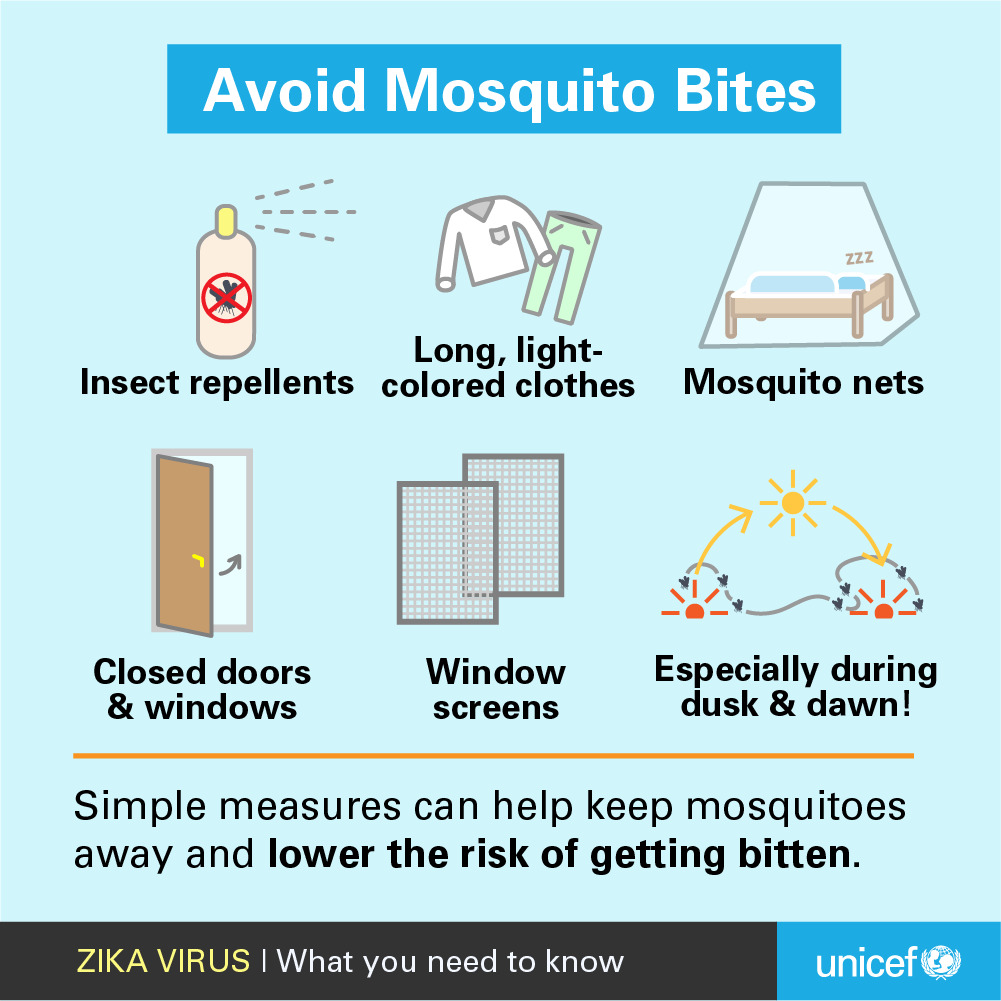
How can I protect myself?
Simple measures can lower the risk of getting bitten by the mosquito carrying the Zika virus. These include using insect repellent, covering as much of the body as possible with long, light-coloured clothing.
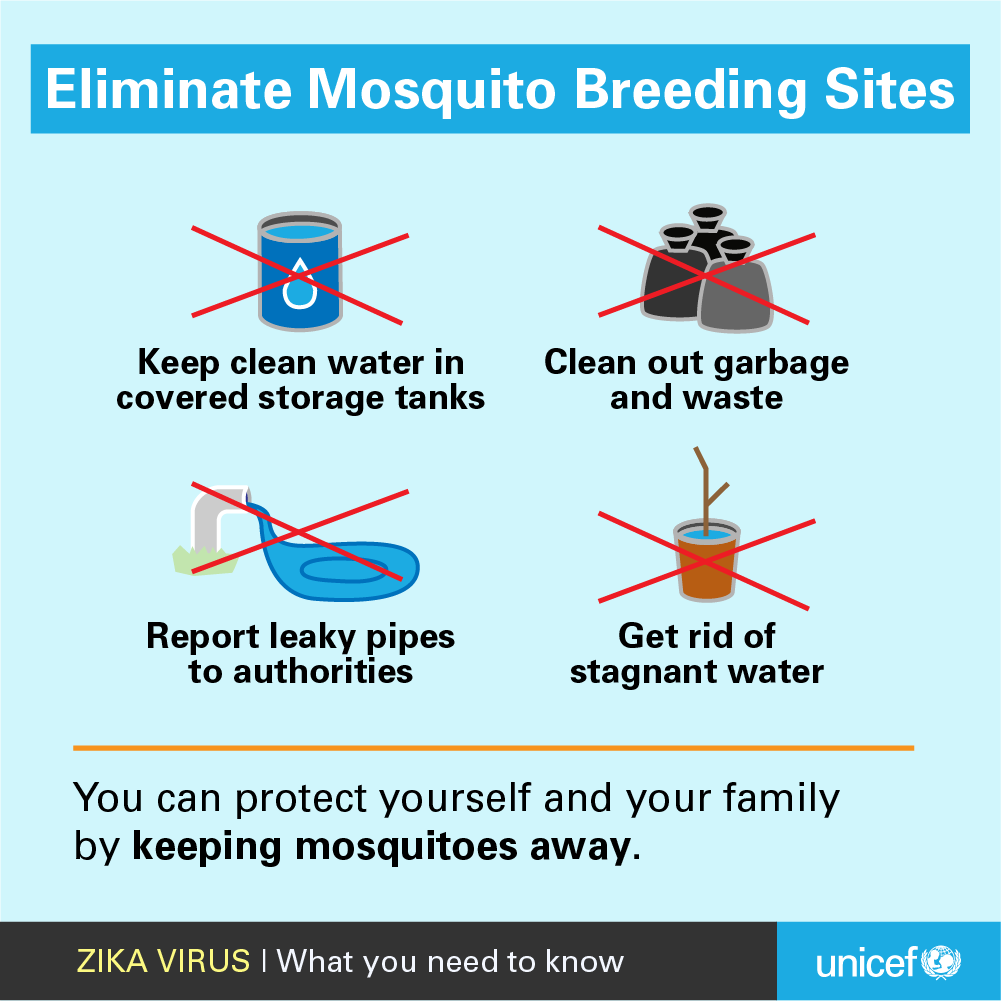
No mosquitoes, no Zika! Eliminating places where mosquitoes can eed and putting screens on windows and doors can also help keep your surroundings safe.
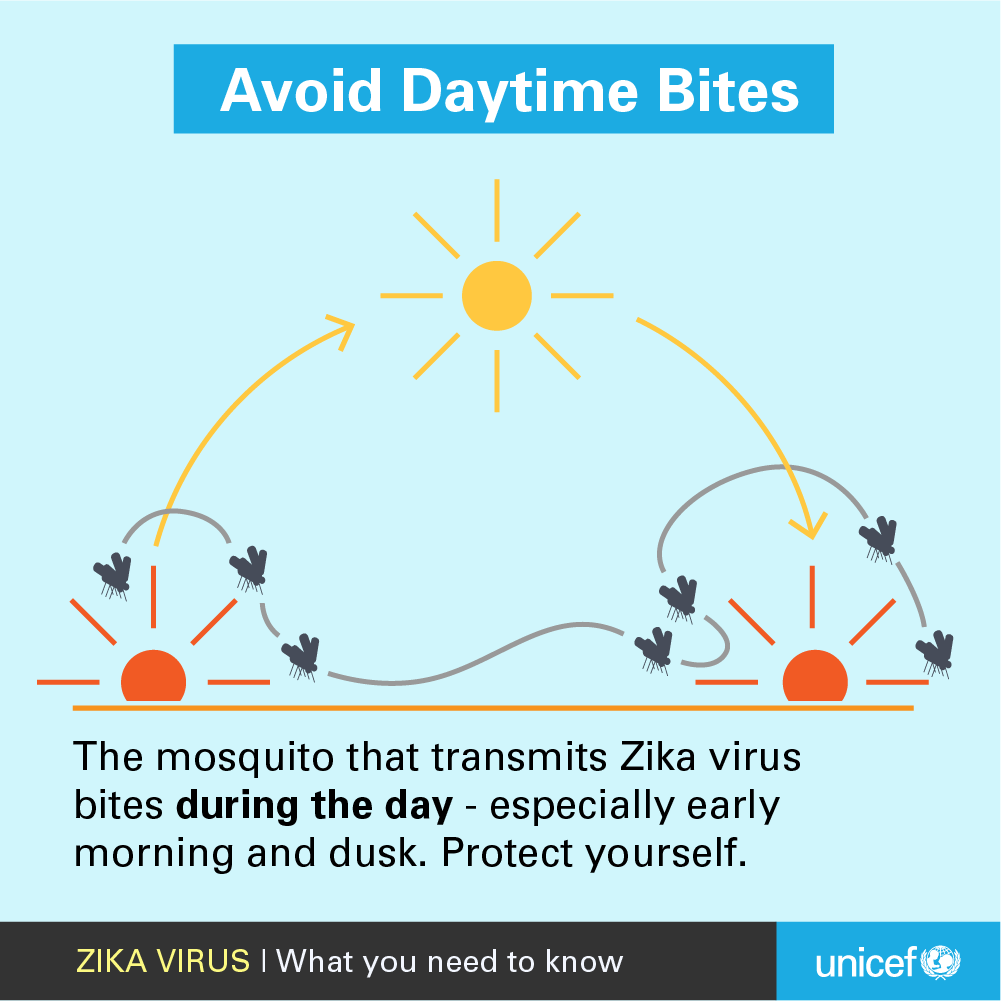
As the mosquito bites during the day, infants, pregnant women and those ill with Zika should nap under mosquito nets.
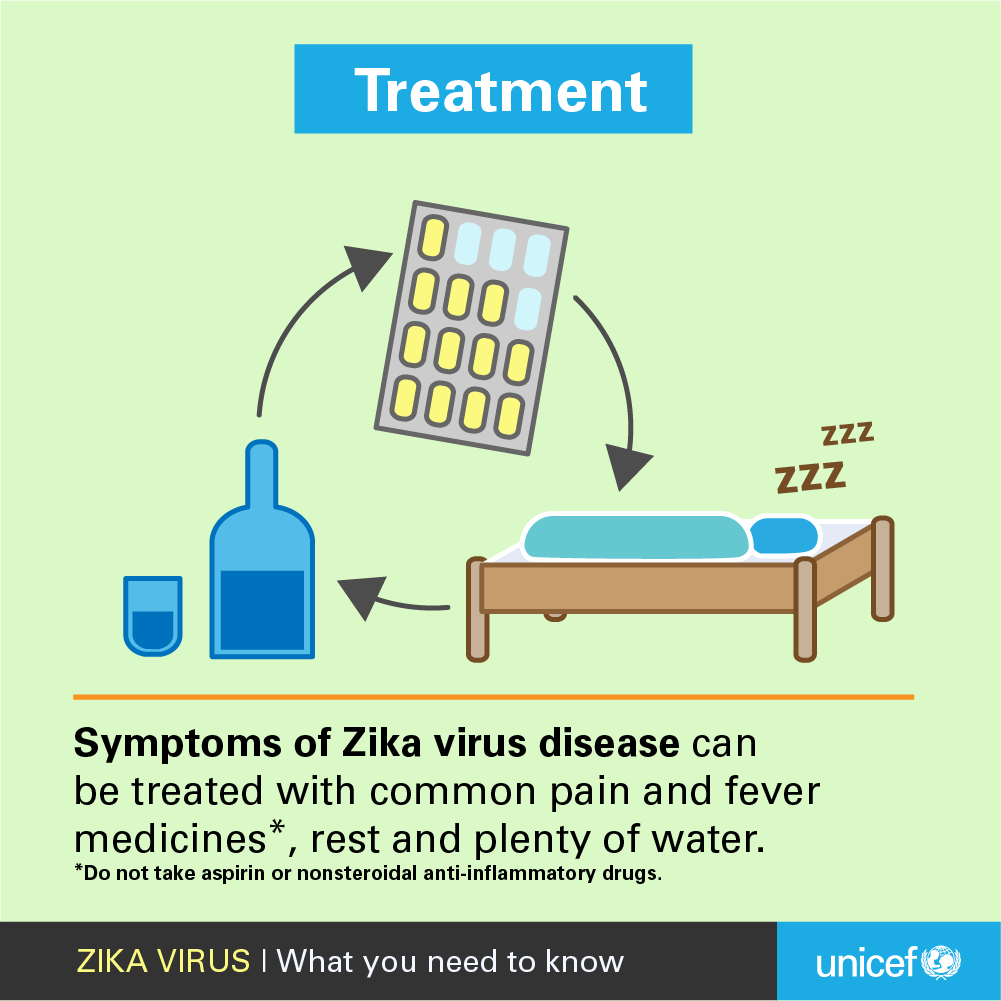
There is no vaccine or specific treatment currently available for the disease. If symptoms worsen, people should seek medical care and advice.
Should pregnant women be concerned about Zika?
Public health experts ‘strongly suspect’ that there is a relationship between the virus and the current spike in microcephaly in Brazil. If you are pregnant or planning to become pregnant, take extra care to protect yourself from mosquito bites and speak to your health provider. Although there is still no conclusive evidence of the relationship between Zika and microcephaly, there is enough concern to warrant immediate action.
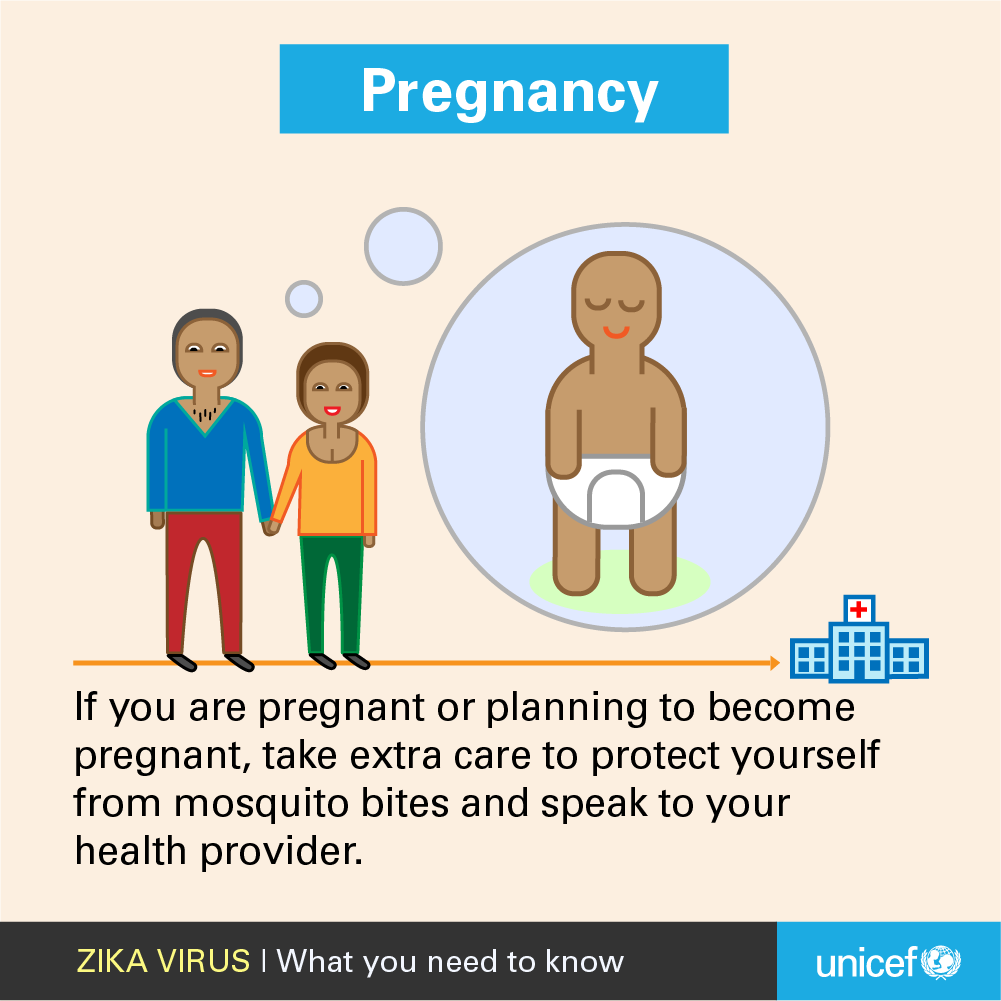
What is microcephaly?
Microcephaly is a rare condition where a baby is born with a small head. Babies and children with microcephaly often have challenges with their ain development as they grow older. Scientists are still investigating whether the increase in cases of microcephaly in Brazil is directly related to the Zika virus outeak.
What is UNICEF doing?
UNICEF is helping limit the spread of the Zika virus and its impact on children and their families, especially in the most disadvantaged communities. We’re working with governments to mobilize communities to protect themselves from infection and we’re appealing for $14 million to meet the immediate humanitarian needs of affected communities.
These funds will be used to help reach communities – nearly 200 million people – with the information they need to stay safe.









